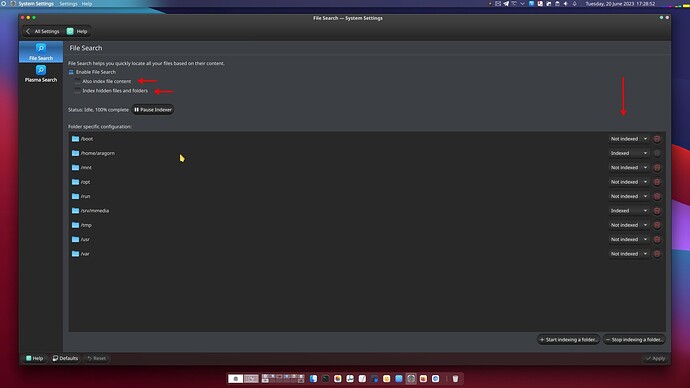My experience is even worse than yours; I’m on the unstable branch and I saw Dolphin’s performance slowly degrading in the last 5 months.
In my fstab I have three nfs mounts declared (they refer to some NAS shares). If the NAS is not started / available, then launching Dolphin results in having a non-responsive and useless window - no matter how long I waited, Dolphin was not becoming usable, so I had to kill it (waited more than 30 min after freshly restarting the PC).
I clearly remember this not being the case up until March - April this year. Then, not having the NAS available resulted just in empty folders at the mount point - that was the normal behavior - and no delays at all.
These are the options I have for each nfs mount; they were not changed since I installed Manjaro 15 months ago.
noatime,nofail,users,x-systemd.automount,x-systemd.after=network-online.target,x-systemd.device-timeout=10,timeo=14,x-systemd.idle-timeout=1min 0 0
What is a clear indication that something is really wrong with the latest updates in KDE is that, while Dolphin is very slow and sluggish to open a large folder (or becomes unusable if the NAS is not available), opening a similar folder from a GTK based application (which does not use KDE’s libraries) is without any visible delay.
My guess is that there were other changes that where not completely undone by the patch in the KDE bug #442106.
edit: Actually it is bug #454722 which does not seem to get enough attention.
The file search indexation is disabled on my PC.
edit 2: 2023-10-20 - potential solution
I was sifting through the KDE bugs and I found a gem: #451876 - bloated user-places.xbel causes poor performing dolphin, file open dialogs, gvenview, krusader and other apps .
I immediately tested how that might work for me - and, surprise, I got from a very lazy/sluggish Dolphin to a speedy one.
What I did:
- I went to
~/.local/share/ folder and renamed user-places.xbel to something else (user-places.xbel.ORIG)
- I started Dolphin and, behold, it was now fast as the first day.
- A new
user-places.xbel file had been generated, but it had the default options.
- I compared the new file
user-places.xbel with the old file (user-places.xbel.ORIG) and I picked the shortcuts that were really useful for me and copied them in the new user-places.xbel - being careful to not break the XML structure.
I enjoy now again using Dolphin !
The explanation: a lot of cruft added by/for Docker and KDE Connect. My original user-places.xbel file was not even that big, but there was some reference there that gave a lot of trouble to Dolphin.
edit 3: 2023-10-24 - final thoughts
After cleaning the user-places.xbel file, everything is fine while the nfs mounts are available, but as soon as the NAS is not available, even after a fresh start of the system, Dolphin will take its time when navigating to any local folder.
So, there are clearly two different reasons for slow Dolphin:
- having a cluttered
user-places.xbel #451876
- having nfs mounts that are not available #454722
Hoping that this might help …
